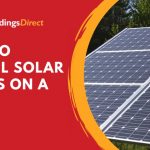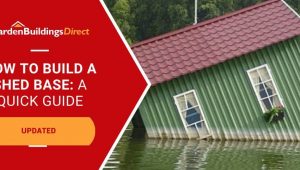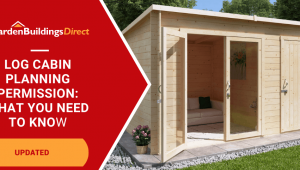Jump to:
Are you looking for ways to make a positive impact on the environment? If so, have you considered the benefits of solar panels for your garden shed?
Going off the grid with your shed could contribute to reducing your carbon footprint. Plus, help save you money in the long run! However, before making a decision, it’s important to weigh the pros and cons.
In this article, we delve into the advantages and disadvantages. Read on and see if these factors align with your energy goals for your shed.
How Much Power Are You Using?
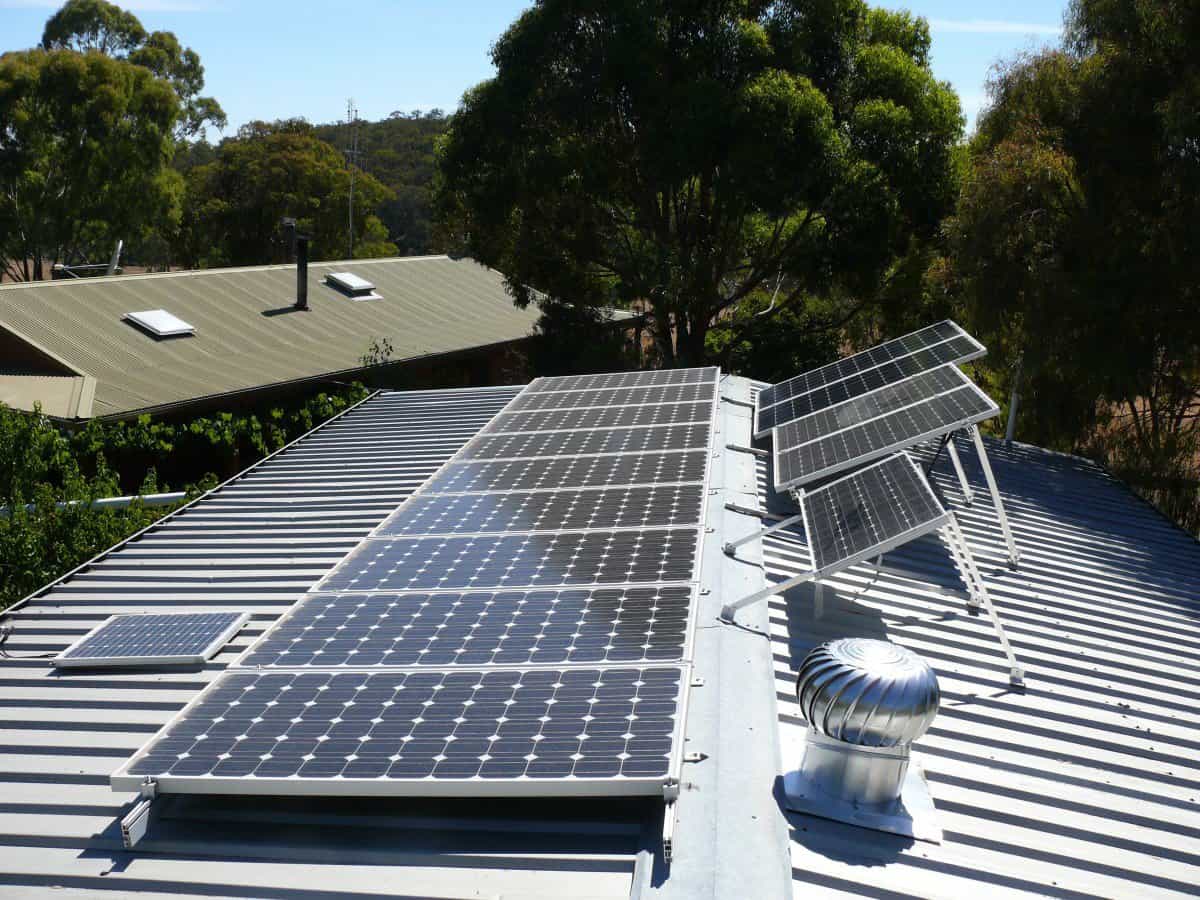
First, assess your power consumption needs. Are you considering solar panels for occasional use? Or for powering essential devices such as computers or a variety of power tools? Understanding your energy requirements is vital in determining the ideal type of system.
Take a 5W mobile phone charger, for instance. It may seem modest, but it would require an inverter with a continuous power rating of at least 150W. Meanwhile, a 400W desktop computer would need an inverter with a minimum capacity of 600W. To determine the power rating of your inverter, add up the required wattage of all the equipment you plan to use.
The quantity of power you expect to consume will influence the type of solar panel system you need. So you want to make sure that you accurately calculate your power requirements. That way, you can ensure that your system is perfectly tailored to your specific needs. Take the time to evaluate your power consumption to make informed decisions.
The Positioning of Your Garden Shed
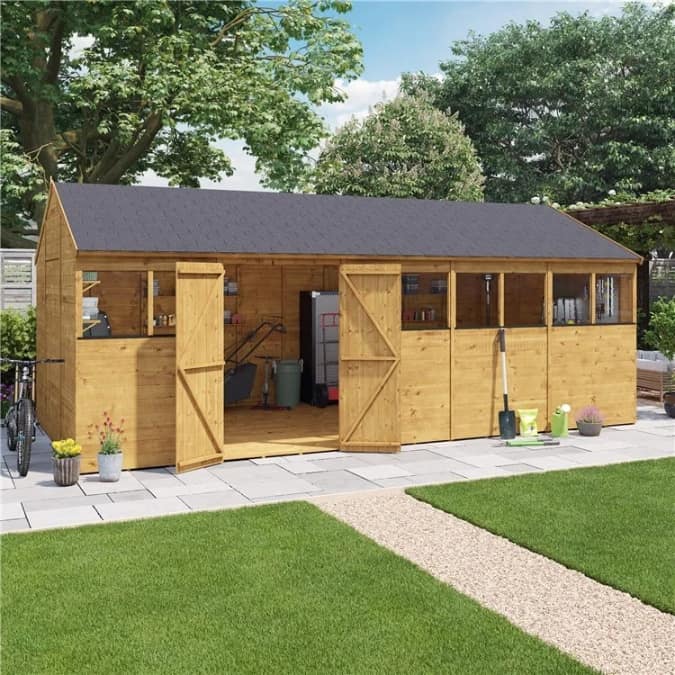
The positioning of your garden shed plays a crucial role in the efficiency of your solar panels. The amount of power generated by the panels depends on the quantity of sunlight they receive. In the UK, winter months are often characterised by limited sunshine. For one, it can impact the power output of your solar panels.
To maximise sunlight exposure, it’s advisable to position your garden shed in a sunspot. Ideally, place it in an area that receives ample sunlight throughout the day. Doing so will optimise the electricity generation potential of your solar panels.
But what if your shed is situated in a heavily shaded location? Even the brightest summer days may not provide enough sunshine to generate electricity.
Thus, decide on the placement of your shed and the viability of solar panels wisely. This factor will directly impact the financial aspect of your investment. It’ll determine whether it will result in long-term cost savings or incur extra expenses.
Take into account the positioning of your garden shed. Moreover, carefully weigh the implications of sunlight exposure for solar panel installation. This enables you to harness the full potential of solar energy and make the most of the benefits for your shed.
Maintenance and Design
The design should also be considered in relation to the aesthetics of your garden. While modern panels make an attractive feature, they may stand out in a traditional setting. This can affect the visual harmony of your outdoor space.
Solar panels can be discreetly fitted to the roof, blending in seamlessly. But note that the sloping nature of the roof may cause the panels to reflect light. This can potentially make them more noticeable.
Among the advantages of solar panels for garden sheds is their low-maintenance nature. With no moving parts, they generally require minimal upkeep. Even better, they can last 20-25 years and only need cleaning a few times annually.
Pros and Cons
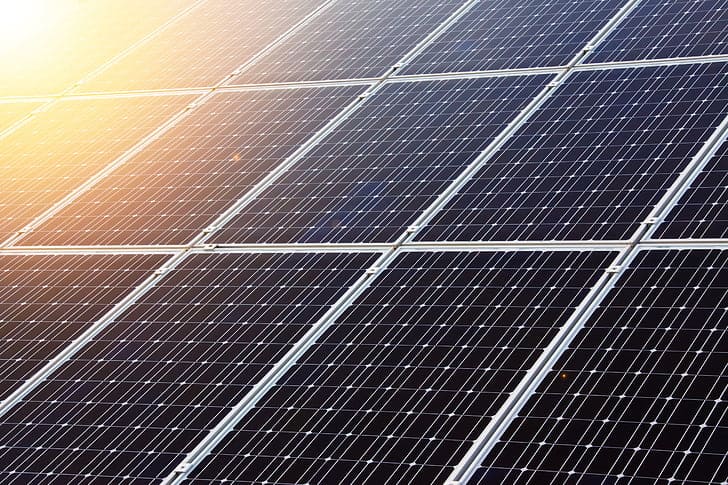
On top of the key points above, here are the pros and cons of installing solar panels in a garden shed:
Pros
1. Renewable energy source
Solar panels harness the power of the sun. They, in turn, provide a clean and renewable source of energy for your garden shed. By utilising solar energy, you can reduce your reliance on traditional electricity sources. Best of all, you can contribute to a greener environment.
2. Cost savings
Solar panels can lead to significant cost savings over time. Once installed, they generate electricity at no additional cost. This can potentially offset or even eliminate your electricity bills. The long lifespan of solar panels (around 20-25 years) ensures prolonged savings.
3. Energy independence
Installing solar panels allows you to become more self-sufficient in terms of energy. By generating your own electricity, you are less dependent on the grid. This makes your shed more resilient to power outages and energy price fluctuations.
Cons
1. Upfront cost
The initial installation cost of solar panels can be relatively high. This includes the cost of panels, inverters, batteries (if desired), and professional installation. It’s important to consider the long-term savings and potential return on investment.
2. Aesthetic impact
Depending on the design and placement, solar panels may affect the aesthetic of your shed. For one, the panels might be visible and stand out. This is a big quirk in a carefully landscaped garden. Consider this and choose a design that blends well with your surroundings.
3. Maintenance and security
Solar panels are generally low maintenance but still require occasional cleaning and inspection. Additionally, the high value of solar panels makes security an important consideration. Ensuring proper measures to protect your investment from theft or damage is crucial.
By carefully considering these pros and cons, you can weigh the long-term benefits. Most importantly, make an informed decision about installing solar panels in your shed.
